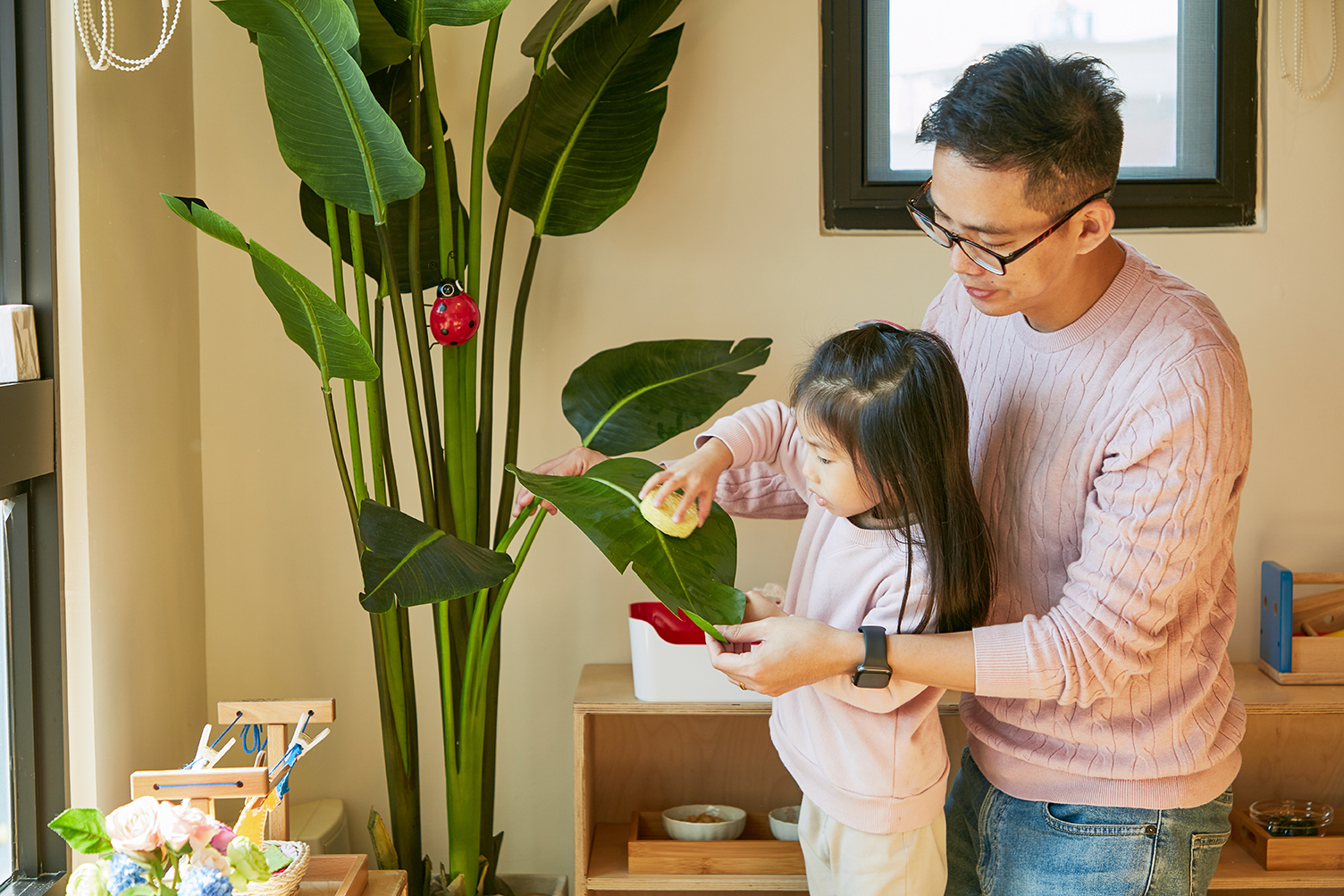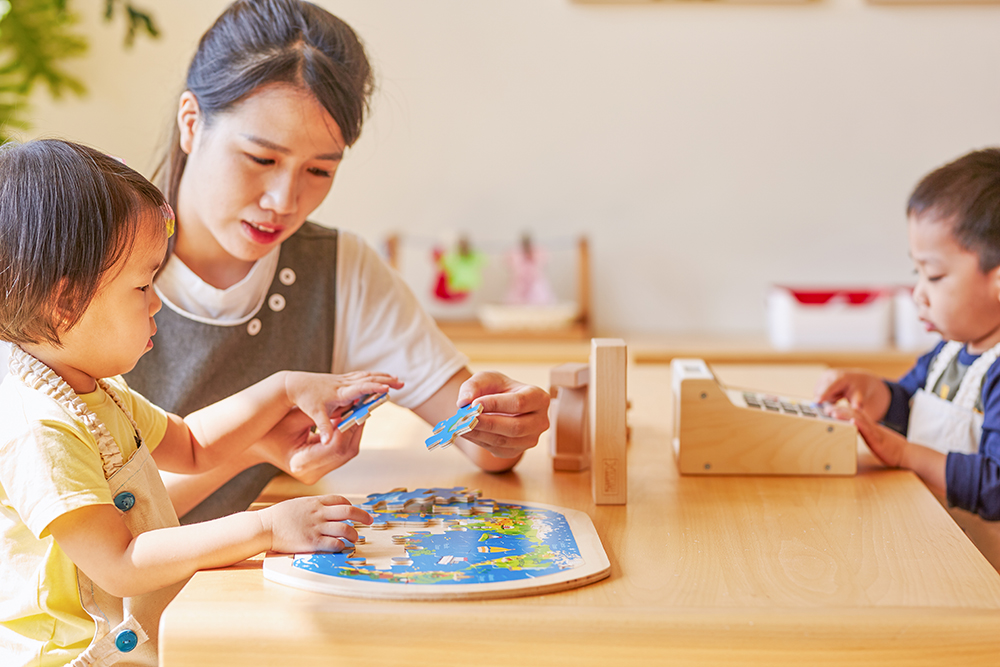蒙特梭利教學法
Montessori Education Method
Montessori education is a scientific method of educational observation, observing children’s needs and learning ability from a scientific point of view. Children’s learning ability is the child’s learning ability during the period of unconscious learning between 0-6 years old and completely unaffected by adults. The most complete period. Therefore, when the child is placed in a preparatory environment (parent-child classroom) that engages in learning through the senses and movements, the child's concentration and learning ability will naturally appear.
Combination of family education and Montessori education
The family is not only an extension of the school. The relationship of mutual trust and love between the child and the parent is the most important foundation for the child’s future growth. Parents can give the child the opportunity to participate in housework activities, let the child participate in daily self-care ability exercises, and the parents slow down Cater to the pace of life of the child, tolerate the mistakes that children may make in the learning process, and the parental discipline to maintain consistency.
The purpose of Montessori education is to help children develop all aspects of their potential, basic common sense, ways of thinking, personality education, and cultivate children's natural learning instincts.

Role of Adults
In Montessori classrooms, adults play a very diverse role by observing children's learning process. We are guides and observers, allowing children to achieve self-education opportunities through their own activities.
Therefore, we carefully prepare the environment for children to learn, add challenging and interesting teaching aids, and demonstrate the operation methods of teaching aids. Adults encourage children to try and help by observing children’s attention or interest in learning. The child overcomes difficulties.
Therefore, we carefully prepare the environment for children to learn, add challenging and interesting teaching aids, and demonstrate the operation methods of teaching aids. Adults encourage children to try and help by observing children’s attention or interest in learning. The child overcomes difficulties.

蒙特梭利教育的五個要素
5 Core Components of Montessori Education
1
Trained Montessori Teachers
We have well trained Montessori educators, with Montessori education philosophy and professional knowledge.
2
The Multi-age Classroom
In our Montessori classrooms, we plan mixed age teaching methods to encourage mutual guidance and leadership development.
3
Using Montessori Materials
The Montessori education feature is to allow children to use specially designed and provides hands-on learning methods.
4
Child-directedI Work
Children have the right to freely choose teaching aids, and they have the motivation to learn through spontaneous internal development.
5
Uninterrupted Work Periods
Children have free working hours and work at their own pace without being disturbed by adults.
理念目標
The Montessori Core Principles
respect
Sensitive period development
Prepared Environment
Independence and Self-learning
・Self-respect, Self-esteem, Self-discipline, Self-motivation
・Problem Solving
・Critical Thinking
・Logical-mathematical Thinking
・Reading, Writing and Mathematics
・Social-interpersonal Skills
・Team Working
・Leadership
・Adaptation
・World Vision
・Problem Solving
・Critical Thinking
・Logical-mathematical Thinking
・Reading, Writing and Mathematics
・Social-interpersonal Skills
・Team Working
・Leadership
・Adaptation
・World Vision